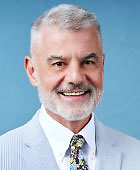Addiction Psychiatry Presidential Theme: Alcohol

With the holiday season quickly approaching, half of our yearlong presidential campaign on addiction psychiatry is complete. This quarter, our focus shifts to alcohol use disorder (AUD), one of the most prevalent illnesses in America. According to the 2021 National Survey on Drug Use and Health, 28.6 million adults had AUD in 2021, in addition to an estimated 894,000 adolescents aged 12 to 17.
Rates of AUD are greatly underreported as some who have symptoms consistent with AUD may not realize there is a problem and others who do may be too ashamed to reach out. Like other mental health and substance use disorders, not knowing that treatment is available and how to get it are a major barriers to getting people the help they need.
At the same time, awareness campaigns around AUD seem to have improved the public’s knowledge about what constitutes problem drinking. In APA’s most recent Healthy Minds Monthly Poll conducted in concert with Morning Consult, Americans were able to identify three of the most problematic symptoms of AUD, namely an inability to stop drinking once started (39%), being unable to limit or reduce the amount one drinks (37%), and drinking that impacts relationships (37%).
Unfortunately, public knowledge about the availability and effectiveness of treatments for AUD is still relatively low. Good news: Community-based support like 12-step programs are well known among the general public and have been helpful for millions, literally, around the globe. Not so good news: Other safe and effective interventions, such as cognitive-behavioral therapy; motivational interviewing; and, when necessary, medications like naltrexone, acamprosate, and disulfiram, are largely unfamiliar to both patients and providers.
Helping patients and their families learn about, appreciate, and embrace AUD treatments is the major objective of this segment of our campaign. APA, our member psychiatrists, patient groups, and our partners in SUD treatment continue to explore opportunities for collaboration so that we can pool our resources and maximize our collective impact. Last month, APA, American Academy of Addiction Psychiatry, American Society of Addiction Medicine, and American Academy of Family Medicine jointly released the “Top Ten Things Everyone Should Know About Addiction” and the “Top Ten Things Every Physician Should Know About Addiction.” I couldn’t be happier that the small group we convened at APA headquarters in July has now completed a major, trans-organizational product that helps move the needle on addiction treatment in a very concrete and powerful way.
I consider myself lucky to have had the support of both our members and the APA administration in undertaking this yearlong effort to increase public education and professional collaboration on addiction issues during my tenure as APA president. If you would like to support future presidents interested in similar endeavors, I encourage you to participate in APA’s 2024 election.
Voting in APA elections is an excellent way to help chart the future of our organization and have a direct impact on what issues our Association prioritizes year to year. The full slate of candidates for 2024 was just released (see pages 8 and 9). Please visit APA’s election page to read candidate bios and identify candidates whose platform aligns with your values as a psychiatrist and personal vision for the future of APA. ■



